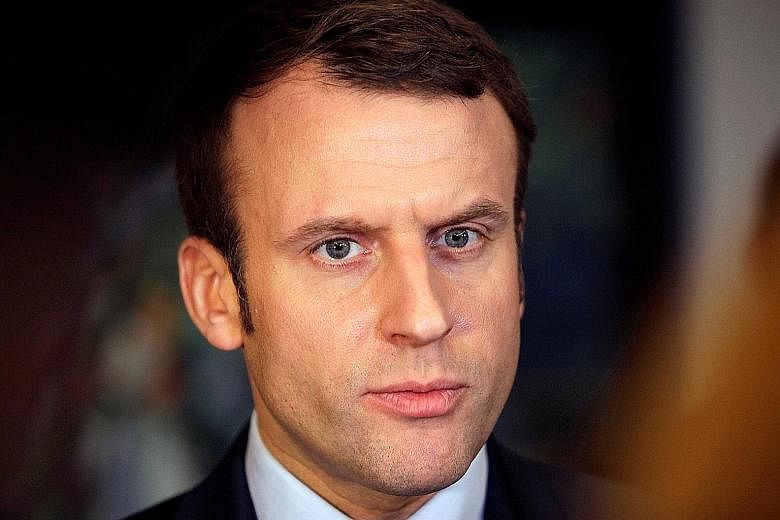MOSCOW • The Kremlin has denied being behind media and Internet attacks on the campaign of French presidential candidate Emmanuel Macron, though the front runner's camp has renewed its charges against Russian media and a hackers' group in Ukraine.
Kremlin spokesman Dmitry Peskov, replying to a question on a daily conference call on Tuesday, said charges made the day before by Mr Macron's party chief Richard Ferrand were absurd.
"We didn't have and do not have any intention of interfering in the internal affairs of other countries, or in their electoral processes in particular," Mr Peskov said.
That there is a "hysterical" campaign against President Vladimir Putin "in certain countries abroad is an obvious fact", he said.
Mr Ferrand had said that the French centrist politician, who is now viewed by opinion polls as the favourite to win the elections in May, had become a "fake news" target of Russian media and that his campaign was facing thousands of Internet attacks.
Mr Ferrand also said Moscow looked favourably on the policies of French far-right leader Marine Le Pen and centre-right candidate Francois Fillon - election rivals of Mr Macron - and that both had been "mysteriously spared" criticism from the Russian media.
Mr Macron's strong pro-Europe stance was not to Russia's liking, however, he said.
Ms Le Pen, who heads the National Front and is Mr Macron's closest competitor in the race for the Elysee, wants to take France out of the European Union and supports Russian policy on Ukraine.
Mr Ferrand renewed those charges on Monday, saying the databases and e-mail boxes of Mr Macron's En Marche! (Onwards) party were under attack.
He said about half of these thousands of attacks came mainly from Ukraine and had been organised and coordinated by a "structured group" and not by lone hackers.
He again pointed the finger at Russian state-controlled media Russia Today and Sputnik, saying they were spreading "the most defamatory" rumours about Mr Macron, including those relating to his private life and the financing of his campaign.
Both Russia Today and Sputnik have denied spreading "fake news" about Mr Macron and say Mr Ferrand's allegations are unfounded.
REUTERS

